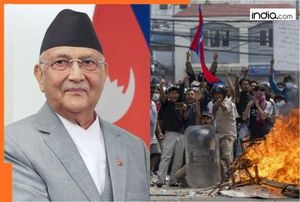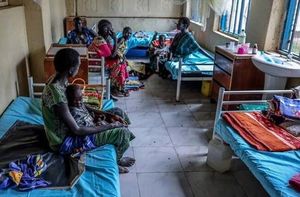Swedish authorities have released five suspects detained over the murder of Salwan Momika, the controversial Iraqi refugee who drew international ire for burning copies of the Quran, triggering both local and foreign outrage. The five suspects were arrested following Momika's shooting on January 29, 2025, but were released by Prosecutor Rasmus Öhman who cited weakening suspicions and insufficient evidence against them, stating, "I see no reason to keep these people under arrest" and adding, "the investigation is continuing."
Momika, 38, was shot at his apartment located in Södertälje, south of Stockholm, where he succumbed to injuries shortly after being taken to the hospital. At the time of his death, Swedish authorities were preparing for a verdict on charges of inciting ethnic hatred against him, stemming from multiple public Quran burnings he orchestrated. Just hours before his murder, the Stockholm court had postponed its ruling on his case until February 3, 2025, due to his unexpected death.
His lawyer, Anna Roth, expressed the awareness surrounding the threats Momika faced, stating, "He was perfectly aware of the major threat hanging over him. There was a price on his head, as he said himself." Momika had been notorious for his actions which included desecrated Qurans during highly publicized demonstrations, and his conduct often incited violence and protests from Muslim-majority countries, leading to strained diplomatic relations.
On January 30, 2025, Swedish Prime Minister Ulf Kristersson labeled the murder "highly dramatic," cautioning about the possible involvement of foreign entities. The rising death toll and tensions stemming from Quran desecration incidents had earned Sweden notoriety both at home and abroad. The Iranian Supreme Leader, Ali Khamenei, had previously condemned Momika's actions, asserting those who desecrate the Quran should face the "most severe punishment."
Momika's disgraceful actions, including trampling on the Quran and stuffing it with slices of bacon, had sparked major protests and even violent attacks on the Swedish Embassy in Baghdad during the summer of 2023. Observers noted the delicate balance between freedom of speech and incitement, with journalist Nils Funcke stating, "This is not just an attack on Salwan Momika as an individual, but also on the Swedish state and our freedom of expression." His murder is viewed as symbolic not only of deteriorated security for freedom of expression but also as indicative of failings at the state level to protect dissenting voices.
Salwan Momika had previously faced legal scrutiny for his actions, reportedly undergoing multiple trials related to agitation against ethnic groups. He had migrated to Sweden as an Iraqi refugee, seeking asylum from threats against him linked to allegations involving political activism and anti-ISIS efforts back home. Desperate circumstances eventually led him to adopt provocative acts as both statements and means of retaining his precarious position within Sweden after narrowly escaping deportation to Iraq.
Momika's shooting reportedly occurred during one of his social media livestreams, potentially capturing the moment. His associate, Salwan Najm, known for participating alongside Momika at previous demonstrations, quickly raised concerns for his own safety on social media, asking rhetorically, "Am I next?" Najm continues to face charges related to similar incitement accusations, underscoring the fraught environment surrounding their controversial activism.
Given the nature of the threats and the background leading to these violent events, many await the unraveling of the investigation. While authorities have released the initial suspects, the lack of immediate closure raises more questions than answers about Momika's murder and the forces behind it. The delicately woven fabric of free speech, cultural sensitivities, and political ramifications continues to hang heavily over Sweden.
Momika's murder and the surrounding events prompt discussions on the protections afforded to individuals pushing against societal norms, particularly when those norms collide with religious sentiments. Funcke's take on the situation illuminates the intrinsic conflict within the country—the right to voice beliefs against the backdrop of violent repercussions. He questioned how such acts could lead to lethal consequences, viewing Momika's death as a significant test for Sweden's commitment to upholding free expression.
Sweden faces pivotal challenges as it attempts to navigate the consequences of heightened international scrutiny following the Quran burnings and the murder of Salwan Momika. The repurcussions will likely shape future dialogues on religious freedoms, Islamophobia, freedom of expression, and the influx of refugees seeking asylum from tumultuous conditions tied closely to their beliefs and actions, raising larger questions about national identity and security.



